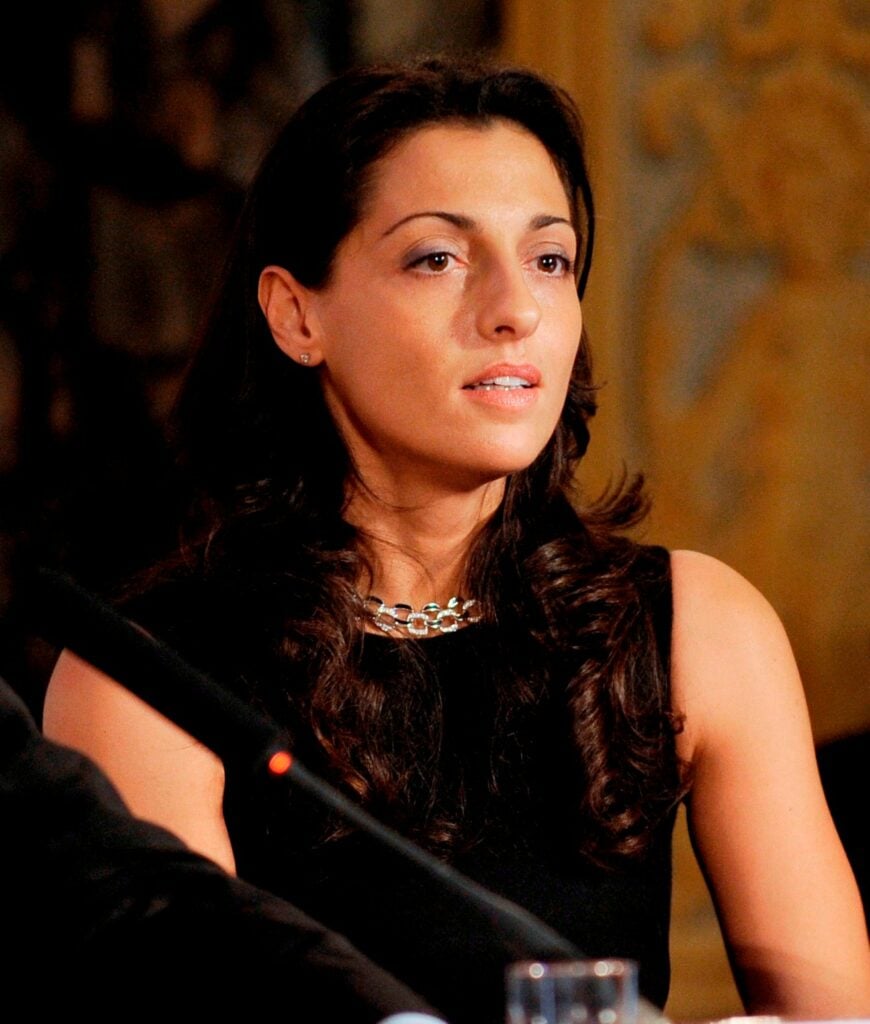
Prof. Irene Tinagli is Assistant Professor at the University Carlos III in Madrid, where she teaches Management and Organizations and conducts research on innovation policies and regional development; Prof. Tinagli is also member of the Italian Parliament (“ Camera dei Deputati “ ). In 2001 she was a Fulbright Scholar to the United States where she carried out a research project on Public Policy at Carnegie Mellon University.
Fulbright Commission: Professor Tinagli could you please tell us why you decided to continue your studies in the U.S? Could you also tell us why you chose the Fulbright Program to achieve this objective?
Prof. Tinagli: I decided to complete my studies in the United States because of the academic quality of American Universities. At the suggestion of a colleague who had received a Fulbright scholarship in the past, I applied for the reputation of the program: a Fulbright scholarship is not only about a financial contribution, it is also a certificate of excellence for those who wish to be part of the American academic system. Another important reason to apply was that I had been told that the selection process was completely transparent and merit-based. Having been through it, I can confirm this: candidates are evaluated exclusively for their previous experience and excellence of their profile.
In 2001 you came to Carnegie Mellon University to carry out your study project. Could you tell us something about your project?
I was aware of the quality of Masters in Public Policy at Carnegie Mellon University. During the selection process, staff of the Commission confirmed that my choice was in line with my background and future goals. A few months prior to the start of my Master, I visited the campus and met Prof Richard Florida with whom I developed the issues of my Masters and PhD: local economic development, the role of innovation in local development, development and urban innovation.
When you recall your stay in the U.S. what is the first image that comes up to your mind?
The University campus, without a doubt. Campus life marked my days: I loved the contrast between green lawns and white buildings. These spaces are conducive to hard work while sending pleasant imagines of rest.
The other imagine that has stayed with me is the skyline of Pittsburgh. I will never forget when I stepped out of the airport and drove to the tunnel with the skyline of Pittsburgh in the background. It was a magical moment!
Could you tell us how your Fulbright experience helped you to reach your professional and personal goals?
I think that without a Fulbright scholarship I would have not studied in the U.S. and I would have had a different future career. This experience has significantly contributed to my future career and personal growth. I became more secure when I realized that the more I learned, the more I could fulfil my hopes and ambitions. At the same time I was confronted with a very competitive environment. I felt inadequate at times and this stimulated me to continuously strive to improve.
From your perspective do you think that the academic exchanges and the Fulbright Program are still useful means to increase and strengthen the mutual understanding between people of different cultures and languages?
Absolutely. When I was in the U.S. and at Carnegie Mellon University, I have shared time, frustration and energy with students from all over the world- in particular from China, India and Asia. This gave me the opportunity of familiarizing myself with and confronting cultures that I would have otherwise found difficult to know. At the same time, I understood what it means to be European. Academic exchanges are essential to learn about new cultures and to understand our own roots.
Just one more question Prof. Tinagli. If you could describe the Fulbright Program in three words you would say that the Fulbright Program is…
Fulbright is… a ticket to a better future!
